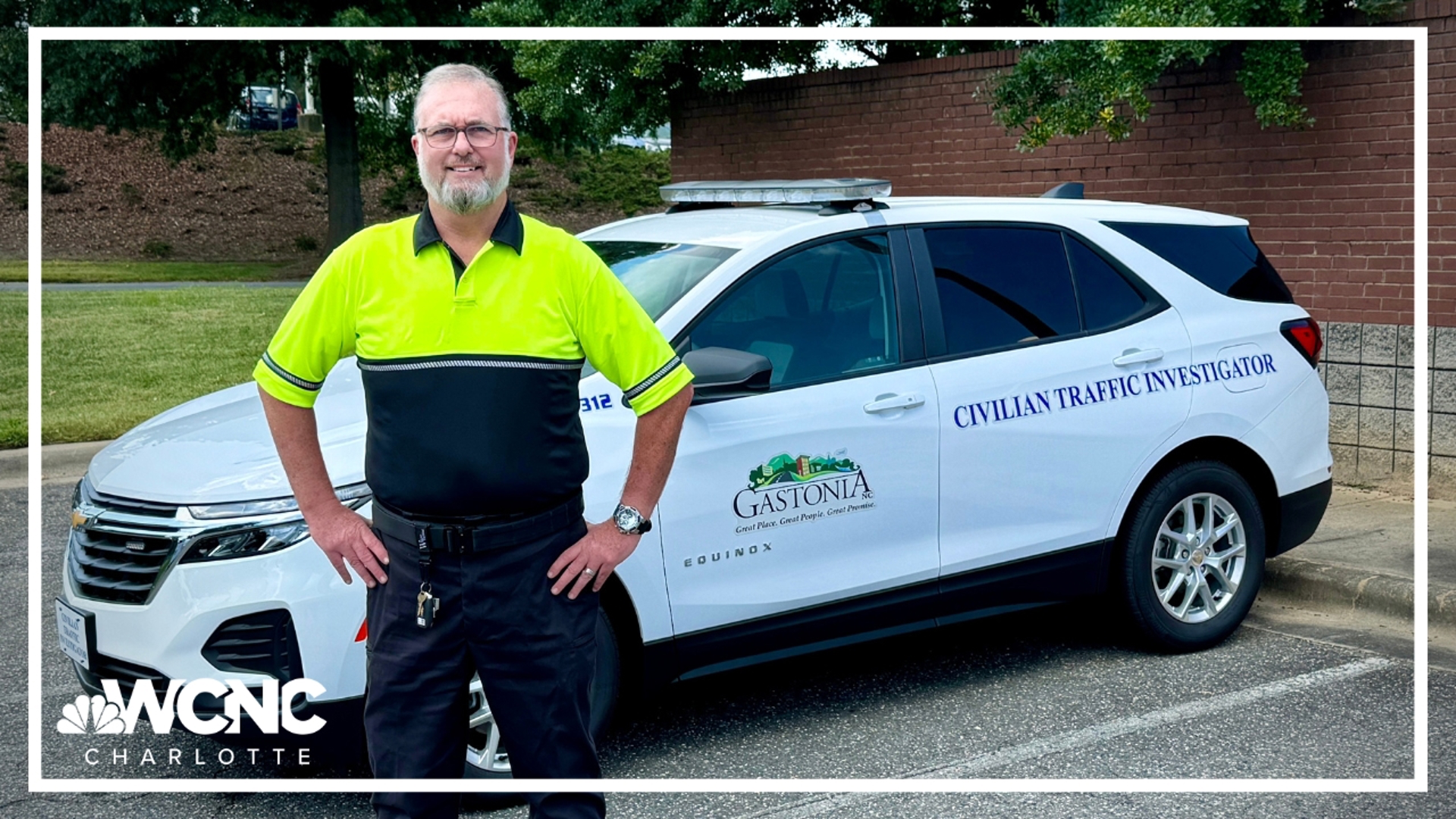GASTONIA, N.C. — Non-injury crashes in the city of Gastonia will soon be handled by civilian crash investigators.
The Gastonia Police Department announced Friday it has launched the new program, aimed to free up police officers to do more proactive policing. Police data shows 85.75% of crashes city-wide so far in 2024 resulted in no injuries. That's on pace to match 2023 numbers (86.51%).
Jeff Johnson, the city's first civilian crash investigator, is already on the road helping at accident scenes. The retired law enforcement officer moved from Florida to North Carolina in 2020.
“I joined law enforcement as a career to help people, so this job as a civilian crash investigator here in Gastonia, is a perfect fit for me,” Johnson said.
The department said three more crash investigators are in the process of being hired, and are expected to be on the road this fall.
“These investigators will be an invaluable asset freeing up sworn personnel allowing them to focus on high-volume complaint areas within the city,” Gastonia Police Traffic Sergeant Joe Bain said.
The statewide legislation to allow programs like these in North Carolina was signed into law last year.
In February 2024, the city of Charlotte approved $1.27 million to a new Civilian Crash Investigation Program within the Charlotte-Mecklenburg Police Department. The funds are coming from the Municipal Debt Service Fund and will be moved to the Capital Equipment Fund to purchase vehicles for the program.
In April, CMPD said the program was on track to launch in July, with 16 civilians investigating property damage-only traffic accidents. New members will undergo a four-week training program through the North Carolina Justice Academy.
The Matthews Police Department has a similar program. The citizen volunteer group started in 2012 and focuses on clerical work and fleet management.
Officer Tim Aycock, Public Information Officer for the Matthews Police Department, told WCNC Charlotte in February the program not only saves sworn officers time, but it also creates community.
“We have citizens by our side and it’s easy because we can kind of pick their brain about what’s happening in their communities, their neighborhoods," Aycock said.

